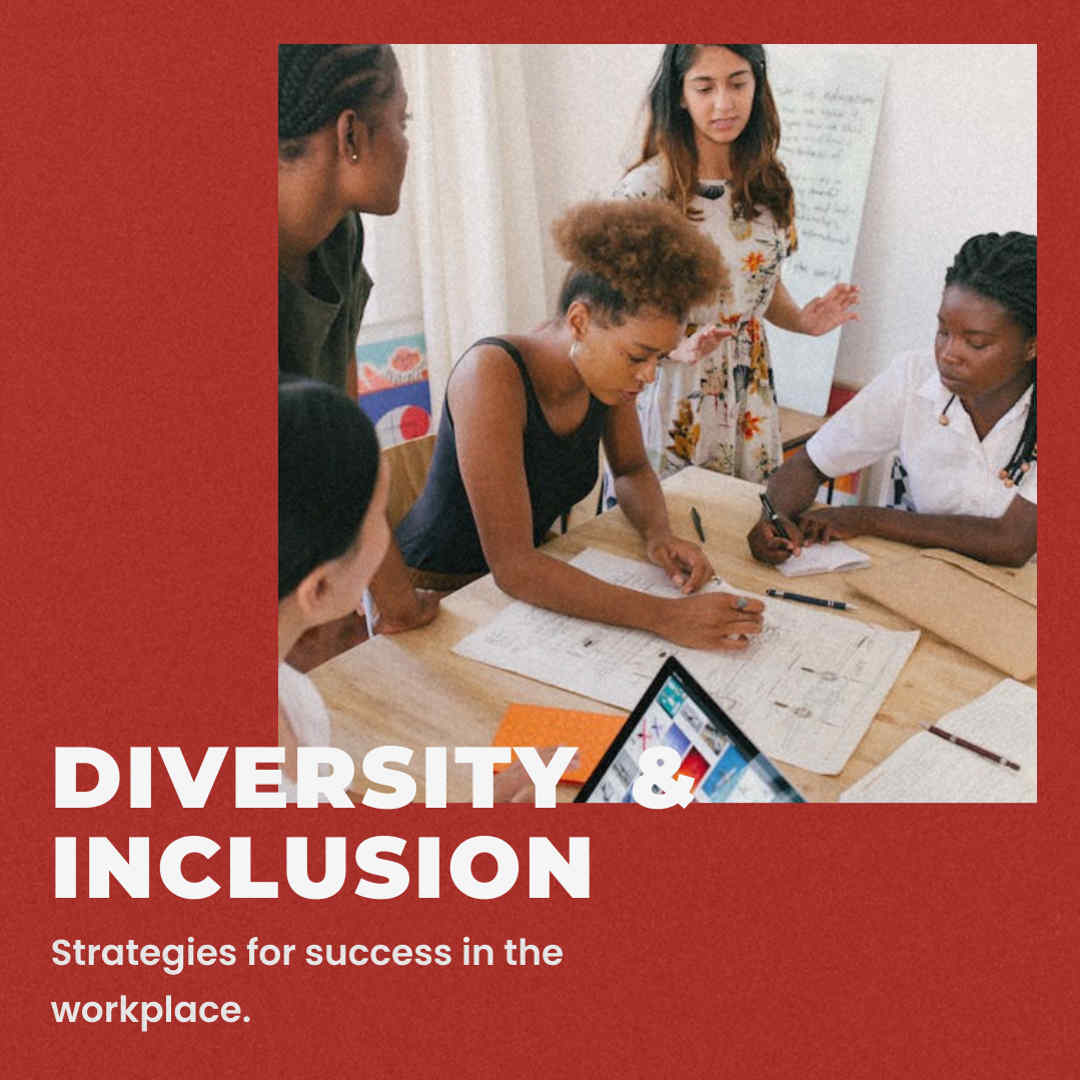Overview:
- Diverse Hiring and Leadership: Implement varied recruitment methods and promote diversity in leadership roles.
- Addressing Bias: Tackle conscious and unconscious biases through policies, communication, and education.
- Team Mixing and Mentorship: Mix team compositions for collaborative learning and implement mentorship programs to support professional growth.
- Conducting frequent diversity check-ins to gather employee feedback and address concerns promptly.
- Emphasize the commitment to diversity and inclusion for equity, fairness, and global business success.
A workforce with diverse ages, races, nationalities, sexual orientations, gender identities, and backgrounds brings valuable perspectives and experiences. Research has revealed that diversity drastically improves the output of an organization or workspace. Diverse individuals brainstorm to contribute unique insights and innovative ideas to the table.
In addition to being a moral requirement, encouraging diversity and inclusiveness in the workplace is a wise business move. Organizations that embrace diversity benefit from a wide range of perspectives, leading to enhanced creativity and more effective decision-making
Most importantly, having a workforce that comprehends different markets and cultures is highly essential for success.
Given the advantages of diversity and inclusion, it’s best to strive for continual improvement in creating an inclusive environment. Here are a few ways to improve diversity and inclusivity in the workplace:
Diverse Hiring and Recruitment Procedures
Employers should use varied hiring strategies to foster an inclusive and diverse work environment. This includes utilizing diverse platforms and participating in activities that highlight marginalized groups.
However, attracting a varied pool of talent is only the first step. Companies need to make sure that the hiring team itself is diverse. This will ensure that candidates from different backgrounds are given equal attention during the hiring process.
A diverse hiring panel and varied recruitment procedures attract more candidates and foster inclusivity.

Encouraging Diversity in Leadership
To create a truly inclusive workplace culture, organizations should actively prioritize promoting diversity in leadership positions. Leadership can cultivate a corporate culture that values diversity, creativity, and better decision-making
To achieve this, it is essential to recognize, nurture, and provide equal promotion opportunities to all. Having diverse leadership sets a powerful example for others. For instance, diverse executives serve as role models for staff from various backgrounds. Additionally, such leaders effectively support inclusion efforts by being attentive to the diverse needs and viewpoints of the workforce.
Their leadership can cultivate a corporate culture that values diversity, creativity, and better decision-making. In order to create a truly inclusive workplace culture, organizations should actively prioritize promoting diversity in leadership positions. To achieve this, diverse talent must be recognized and nurtured, ensuring equal promotion opportunities for all. In addition, impartial, open, and transparent hiring and promotion procedures must be set up.
Aside from reflecting the variety of the workforce, diverse leadership sets a strong example for others. Diverse executives serve as role models, inspiring staff from all backgrounds to pursue leadership and contribute to company success. Diverse leaders effectively support inclusion efforts by being attentive to diverse workforce needs and viewpoints.
Addressing Conscious & Unconscious Bias
Despite efforts to avoid it, many workplaces hold unconscious or deliberate biases. Conscious bias involves stereotypes shaping how colleagues perceive each other and influencing their interactions. This leads to unfair workplace actions or practices due to such views and prejudices.

Conscious biases are even worse. They are deliberate beliefs that are reflected in their behavior through discriminatory actions and obstructing inclusiveness. In order to address conscious bias, discriminating attitudes and actions must be addressed and altered by inclusive policy, communication, and education. This way, unconscious bias influenced by gender stereotypes would also be challenged by building an inclusive workplace for women and other marginalized groups.
Addressing unconscious and conscious bias fosters an inclusive workplace where employees feel respected and valued.
Mixing Up Teams
Changing up teams gives employees a chance to learn from one another. When people from diverse backgrounds collaborate, they can exchange cultural practices, information, and experiences. This promotes diversity and cultural competence inside the organization by cultivating a culture of learning and understanding. One effective approach is assembling cross-departmental project teams to brainstorm and collaborate.
Mentorship Programs
Mentorship programs can significantly enhance workplace inclusivity as part of diversity efforts. This includes pairing new joiners, especially those from underrepresented groups, with mentors for guidance and support. This helps new joiners, better navigate their responsibilities, while increasing employee retention and job satisfaction.
Furthermore, mentorship programs promote and support diversity at all organizational levels by providing equal opportunities for professional growth and progress. For example, mentors actively assist their mentees in overcoming obstacles and achieving career objectives. In short, these programs demonstrate your company’s commitment to diversity and inclusion right from the beginning.

Establishing Frequent Diversity Check-Ins
Frequent diversity check-ins involve gathering staff viewpoints and experiences on diversity and inclusion programs. This can be done through various methods such as conversations and feedback sessions. These check-ins provide valuable insights into gender equality and inclusivity at the workplace atmosphere beyond simple surveys. They help monitor new concerns and offer immediate feedback on the effectiveness of diversity and inclusion programs. Ultimately, they promote open communication and transparency which are essential for the diverse and inclusive work environment
Conclusion:
Prioritizing discussions on how to improve diversity and inclusion in the workplace shows a commitment to equity and fairness. It enhances a company’s reputation and helps it attract top talent. As companies expand globally, success hinges on a diverse workforce understanding and relating to various markets and cultures.
To foster inclusivity, companies must prioritize creating a culture where all employees feel valued, respected, and empowered. Simply increasing diversity is not enough.
FAQs:
Why is diversity important in the workplace?
Diversity is important in the workplace because it introduces different perspectives and experiences which boosts creativity, and enhances decision-making. Enhancing the company’s reputation and boosting overall success are the outcomes.
What is the role of leadership in promoting diversity?
Leaders should prioritize diversity in promotions, set transparent procedures, and serve as role models for inclusivity.
How do mentorship programs support diversity?
Mentorship programs help pair new hires, especially from underrepresented groups, with mentors for guidance, enhancing their understanding and job satisfaction. This promotes fairness and growth opportunities for all employees.
How can a company create an inclusive culture?
A company can create an inclusive culture by valuing, respecting, and empowering all employees while continuously improving diversity and inclusion practices. This ensures that every employee feels valued, heard and empowered. Companies can build a culture that not only attracts top talent but also drives innovation and business success.


